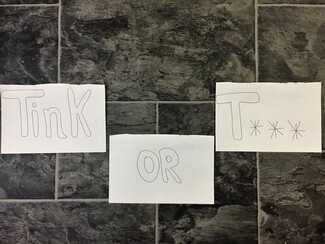Is it time Scottish society re-thought it’s language use?
31 January 2018

Scottish Traveller David Donaldson explores the use of ethnic slurs– and answers his own question: Is it time Scottish society re-thought its language use?
“I was so embarrassed today; my jeans were covered in oil – I had to pick my children up from school looking like a tink.”
As I sat in front of him shocked and deeply insulted by what he had said, the non-travellers around me laughed. They found no offence, nor did they see anything wrong with what he had just said, even though they knew they were in the company of a Traveller……… Writes David Donaldson
I found myself confused, a word that I was always taught was a deeply offensive term towards Travellers had just been laughed off. As I walked out of the room I began to think more about the word, had he even realised he was insulting my people and re-enforcing the stereotype that Travellers are dirty?I thought of how commonplace the word tink and its derivatives are in Scotland. This ethnic slur has seemingly worked its way into the language of many Scots as simply a way to describe something dirty.
In a survey conducted with Scottish Travellers I found that 87% of respondents find the word ‘tink’ offensive towards Travellers. Furthermore that 87% would be personally insulted if they overheard someone say, “I’m so scruffy just now, I must look like such a tink.”
Travellers explained that they see the term ‘tink’ as racist, derogatory and unacceptable.
So, I am not alone in finding the term tink offensive towards Travellers.
Travellers explained that they see the term ‘tink’ as racist, derogatory and unacceptable.
The history books would also agree with the term ultimately be aimed towards my community. The term itself derives from the word ‘Tinker’, first recorded in the 13th century, which up until recently was the name given to a Scottish Traveller, due to many Travellers being tinsmiths by trade.
The word ‘tink’ is not alone however, another word is ‘minky’, this is commonly used to describe something or someone who is dirty or disgusting. However, few people seem to realise that this term too is especially insulting towards Travellers. The word is thought to derive from the word ‘minceir’ which was historically used as a word for Irish Travellers.
The survey showed that 87% of respondents see offence towards Travellers in the term ‘mink’, however many state that they find the term ‘tink’ more offensive due to its closer link to the word Tinker.
Yet, although there is a clear understanding from within the Traveller community that the words ‘tink’ and ‘mink’ are strong ethnic slurs. The settled community do not seem to have the same understanding. If you walk into a café in Dundee or Perth many wouldn’t bat an eyelid at asking you if you want ‘tinky tea or normal’ (black or white)
Speaking to many settled people I know, they had no knowledge that by using the term ‘tink’ they were reinforcing negative stereotyping of Travellers and offending a whole community. Even less had the knowledge that by using the word ‘mink’ they were in fact using an age old insult to Travellers.
The recent case of Anne Marie Morris MP,where she described a Brexit no deal as a ‘N***** in the woodpile’ caused shock and condemnation across the country. And yet, I find myself wondering whether a politician would issue an ‘unreserved apology’ for using the ethnic slur ‘tink’.
Even now as I write this article I do not have to star out the word tink as an offensive word, political correctness and its inclusion of Travellers seems to be sketchy.
In saying this, there was one significant case in recent years where a man was made to give an apology for using the term. Ian MacGregor was charged with a hate crime in 2014 after a Traveller couple reported him, for calling them ‘tinks’.
Clearly the law understands that the word tink is an ethnic slur and is prosecuting its use more seriously, but the fact that this word is still so commonplace is shocking.
It is now wholly unacceptable to ever use the word n*****, why is it still overlooked when people use the word tink or mink? Why is it still acceptable to cause offence and re-enforce negative stereotypes of Travellers?
Some may discount my article as another opinion piece from an ‘over-thinking, offence-taking millennial’ if you are thinking this then you are part of the problem.
The words discussed here have always caused hurt and offence towards Travellers, this is not a ‘new’ idea thought up by my generation.
As a society we need to re-think our language use, ignorance is no longer an argument.
Words like t*** and m*** have no place in 2018.
David Donaldson is a member of Travellers’ Times Youth Advisory Group.
Region